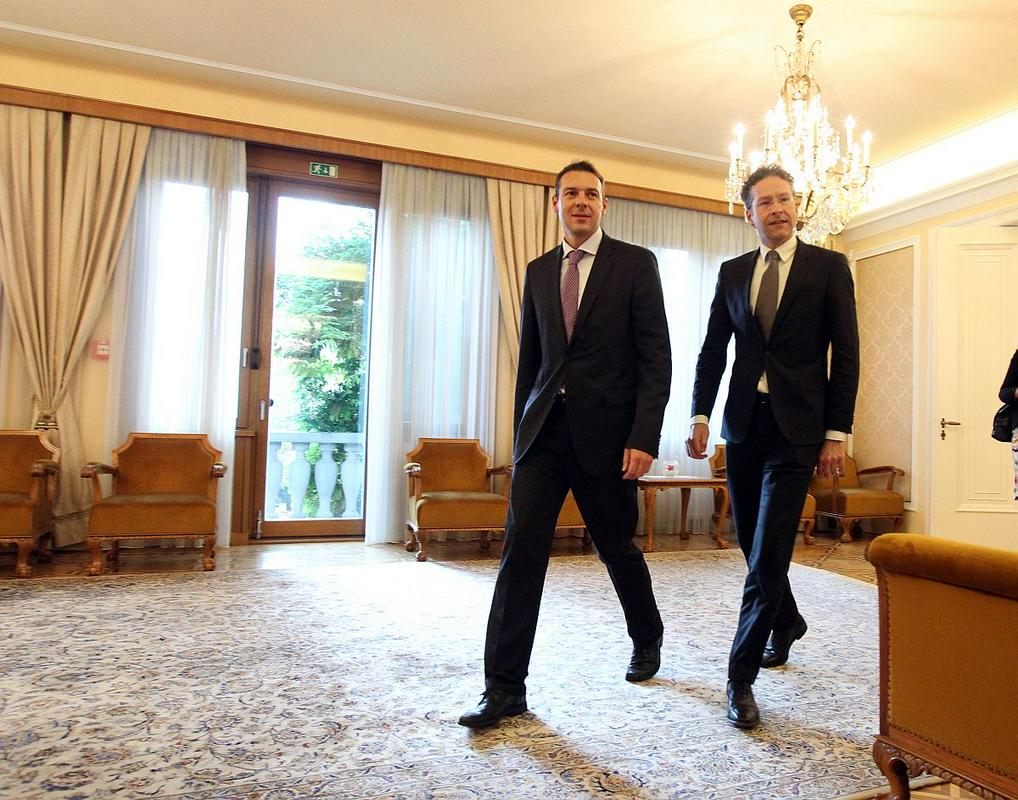
Slovenia, weighed down by some 7.9 billion euros of bad loans in its mostly state-owned banking sector, is struggling to avoid becoming the currency bloc's sixth member to seek international financial assistance. When asked which type of aid programme would be best for Slovenia, he said: "None". Dijsselbloem said that delays to an ongoing stress test of the country's banks were no indication of the final result, but that it was better to be thorough than to rush the process.
"The fact that the process is taking a little longer shows how complex it is. Going through bank books is a time-consuming process. It is more important to do it right than to do it hastily. That is no indication of what the outcome might be," he said after a meeting with a meeting with Finance Minister Uroš Čufer in Ljubljana.
Slovenia plans to recapitalise its banks later this year or in early 2014 after it gets results of the stress tests, which are expected by the end of the year. Although Slovenia is being visited by a delegation of the International Monetary Fund and by a delegation of directors of the European Bank for Reconstruction and Development this week, Dijsselbloem denied it was under a special scrutiny by international institutions, calling the visits "routine".
"A good thing that has come out of euro crisis is that now we watch each other a little more closely," he said. "My message to Slovenia or any country is that we all have to stick to the promises we made each other, to deal with budget problems, to work on structural reforms and act together to work also on our financial sector. These are the three top issues in the euro zone and the European Union as a whole," he added.TT
The Slovenian government claims it will be able to avert a bailout by reforms that include budget cuts, tax increases and privatisation but Dijsselbloem refused to comment on those reforms, saying the European Commission will issue its assessment in mid-November. Slovenia was the fastest growing euro zone member in 2007 but was badly hit by the global crisis. It suffered a new recession last year amid lower exports, a credit crunch and lower domestic spending due to budget cuts.

































































